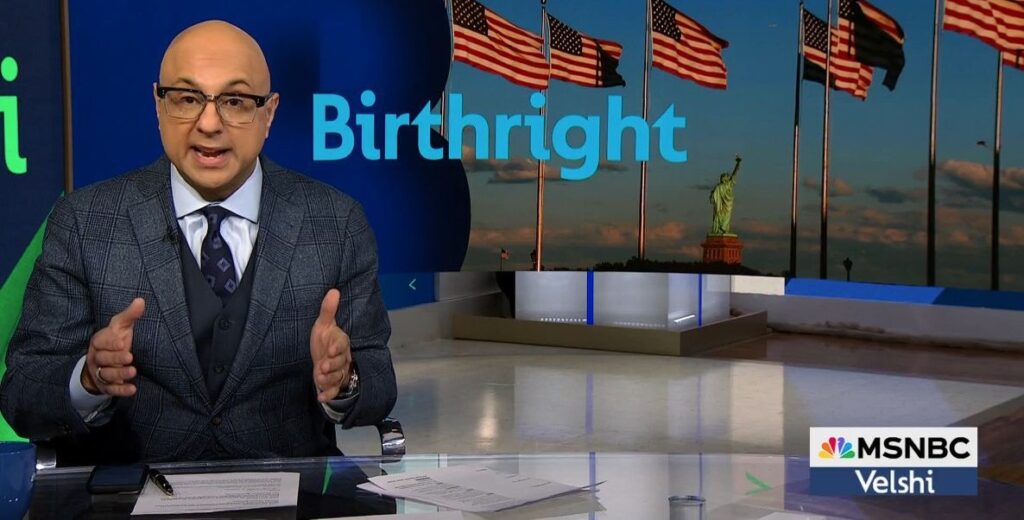Wong Kim Ark was born to immigrant parents around 1870 in San Francisco’s Chinatown. After spending time in his parents’ birth country, China, he hoped to return with his wife to San Francisco but was barred by the Chinese Exclusion Act of 1882. The U.S. did not consider Wong a citizen. Ali Velshi explains the history behind the case and why birthright citizenship is vital to our rights today.
Wong would fight all the way to the U.S. Supreme Court, asserting that under the 14th Amendment — enacted during Reconstruction to repudiate our history of slavery — birthright citizenship is guaranteed for anyone born on U.S. soil. The Supreme Court sided with him, as the first sentence or “Citizenship Clause” of the 14th Amendment is quite clear:
All persons born or naturalized in the United States, and subject to the jurisdiction thereof, are citizens of the United States and of the State wherein they reside.
According to the ruling in Wong’s case, if children of White immigrants were already considered citizens under the 14th Amendment, the U.S. could not pick and choose which children of other immigrants could be considered citizens. On the other hand, a few years earlier, the very same Supreme Court upheld the Chinese Exclusion Act, writing of “… an Oriental invasion … a menace to our civilization …”
If that language sounds familiar, take heed. Donald Trump has promised to work to end birthright citizenship “on day one” regardless of the Constitution. Reversing the 14th Amendment would undermine our citizenship rights — and threaten our democracy.
LISTEN: VELSHI ON WHY WE HAVE BIRTHRIGHT CITIZENSHIP
WATCH: VELSHI TALKS ABOUT THE 14TH AMENDMENT


